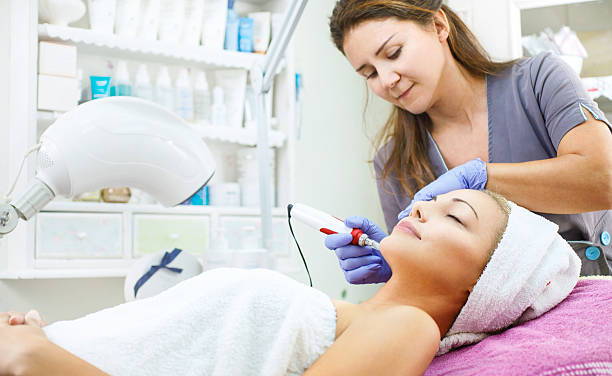In the vibrant city of Riyadh, skin whitening practices have become increasingly prevalent, reflecting a complex interplay of cultural, religious, and societal factors. This blog aims to delve into the nuances surrounding skin whitening in Saudi Arabia, particularly in Riyadh, shedding light on the role of religion in shaping perceptions of skin color and beauty standards.
Cultural Perspectives on Skin Whitening:
Skin whitening in Riyadh, Saudi Arabia is deeply entrenched within cultural norms and beauty ideals. Fair skin is often associated with notions of purity, elegance, and social status. This preference for lighter skin tones can be traced back to historical influences, where it was viewed as a symbol of refinement and privilege. Today, skin whitening products are marketed extensively across Riyadh, catering to the cultural preference for lighter complexion.
Religious Influences on Beauty Standards:
Religion plays a significant role in shaping perceptions of beauty and skin whitening practices in Riyadh. Islam emphasizes modesty and cleanliness, which can extend to physical appearance. While the Quran does not explicitly dictate beauty standards based on skin color, cultural interpretations may influence individual beliefs. Some individuals may perceive lighter skin as more aligned with Islamic ideals of purity, leading to the widespread acceptance of skin whitening.
Social Pressures and Beauty Ideals:
Societal pressures also contribute to the prevalence of skin whitening in Riyadh. In a society where appearances hold considerable weight, individuals, particularly women, may feel compelled to adhere to certain beauty standards. The media, including advertising and entertainment industries, often perpetuate narrow beauty ideals that prioritize lighter skin tones. Consequently, many individuals resort to skin whitening products to conform to these standards and enhance their self-esteem.
Health Considerations and Risks:
Despite its popularity, skin whitening raises concerns about potential health risks. Many commercial skin whitening products contain ingredients such as hydroquinone and mercury, which can have adverse effects on the skin and overall health. Prolonged use of these products may lead to skin irritation, pigmentation disorders, and even systemic toxicity. It is essential for consumers in Riyadh to prioritize their health and seek safer alternatives to achieve desired aesthetic outcomes.
Government Regulations and Consumer Awareness:
In response to growing health concerns, the Saudi Arabian government has implemented regulations to control the sale and distribution of skin whitening products. However, enforcement of these regulations remains a challenge, and counterfeit or illegally imported products continue to circulate in the market. To combat this issue, there is a need for greater consumer awareness regarding the potential risks associated with skin whitening and the importance of using safe and regulated products.
Ethical Considerations in Beauty Practices:
The pursuit of lighter skin raises ethical questions regarding beauty standards and societal pressures. It is crucial to recognize that beauty comes in diverse forms, and individuals should not feel compelled to alter their appearance to conform to unrealistic ideals. Embracing cultural diversity and promoting self-acceptance can foster a more inclusive and accepting society. By challenging existing beauty norms, individuals in Riyadh can advocate for a more equitable and compassionate approach to beauty practices.
Cultural Shifts and Future Outlook:
As societal attitudes evolve, there is a growing movement towards embracing natural beauty and diversity in Riyadh. Influencers and activists are challenging traditional beauty standards and promoting acceptance of various skin tones. Moreover, advancements in skincare technology offer safer and more effective alternatives to traditional skin whitening methods. By fostering dialogue and promoting education, Riyadh can pave the way for a more inclusive and empowering approach to beauty.
Conclusion:
In conclusion, skin whitening practices in Saudi Arabia, particularly in Riyadh, are deeply influenced by cultural, religious, and societal factors. While skin whitening products remain popular, there is a growing awareness of the health risks and ethical considerations associated with these practices. By promoting diversity, challenging beauty norms, and prioritizing consumer safety, Riyadh can foster a more inclusive and accepting beauty culture. It is essential to recognize that true beauty transcends skin color and lies in embracing one's unique identity and individuality.





Comments